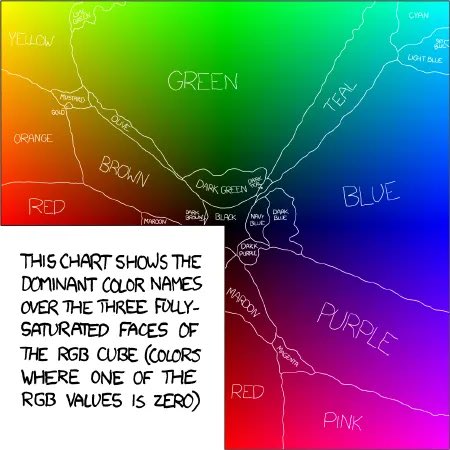A brief thread on color differentiation!
We have a huge number of words for color in English, as Ingrid Sundberg's Color Thesaurus shows. 1/n ingridsundberg.com/2014/02/04/the…
We have a huge number of words for color in English, as Ingrid Sundberg's Color Thesaurus shows. 1/n ingridsundberg.com/2014/02/04/the…

But different cultures group colors differently. This chart based on research by Gibson and Conway shows the difficulty of communicating a color. The colors to the left are easiest to communicate since they are most distinct (white and red in English). 2/n theconversation.com/languages-dont… 

But the emotional associations with colors are remarkably similar across cultures. 3/n
https://twitter.com/emollick/status/1303873068570415104?s=20
You can test your own ability to differentiate among colors by sight with this puzzle game. 4/n kuku-kube.com 

The rest of the thread describes real colors, but this image can generate impossible-to-render colors too:
🔵Stygian blue: a blue both totally blue & impossibly black
🔴Self-luminous red: a red that is brighter than white
🟠Hyperbolic orange: more orange than 100% orange color
5/
🔵Stygian blue: a blue both totally blue & impossibly black
🔴Self-luminous red: a red that is brighter than white
🟠Hyperbolic orange: more orange than 100% orange color
5/

And there is always, always an appropriate xkcd, in this case a survey determining consensus viewsof what name to give each color rendered on a screen. blog.xkcd.com/2010/05/03/col…
You can play with these using the color controversy game (via @mattgroh) 6/ colorcontroversy.com


You can play with these using the color controversy game (via @mattgroh) 6/ colorcontroversy.com



Colors can have a big influence on how we feel about the world. Here’s an example of how much choosing the right color matters, even where you wouldn’t expect it. 👇
https://twitter.com/emollick/status/1367554197126868998
• • •
Missing some Tweet in this thread? You can try to
force a refresh
















